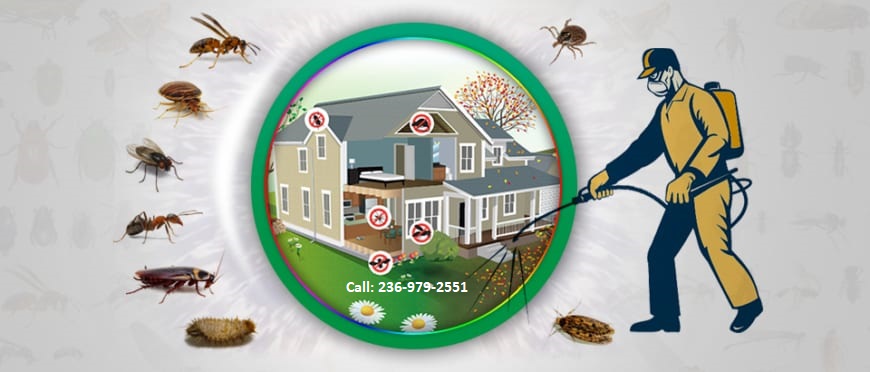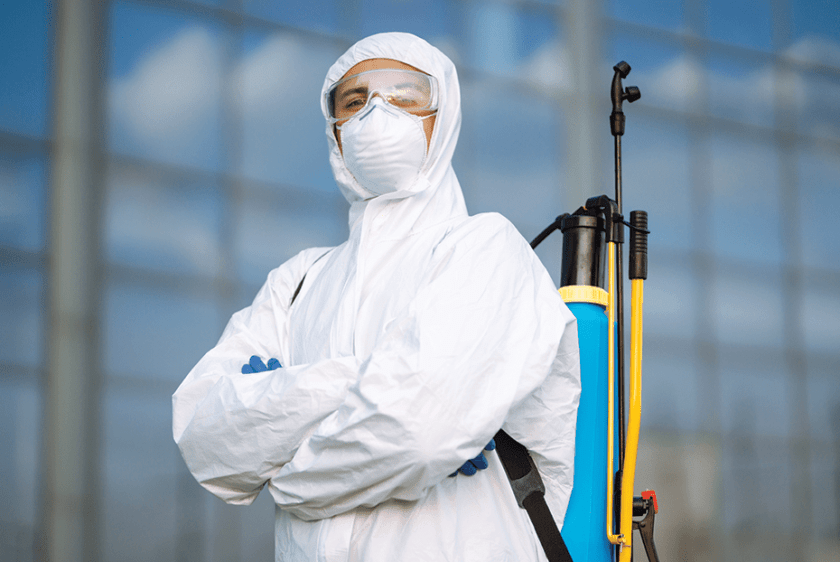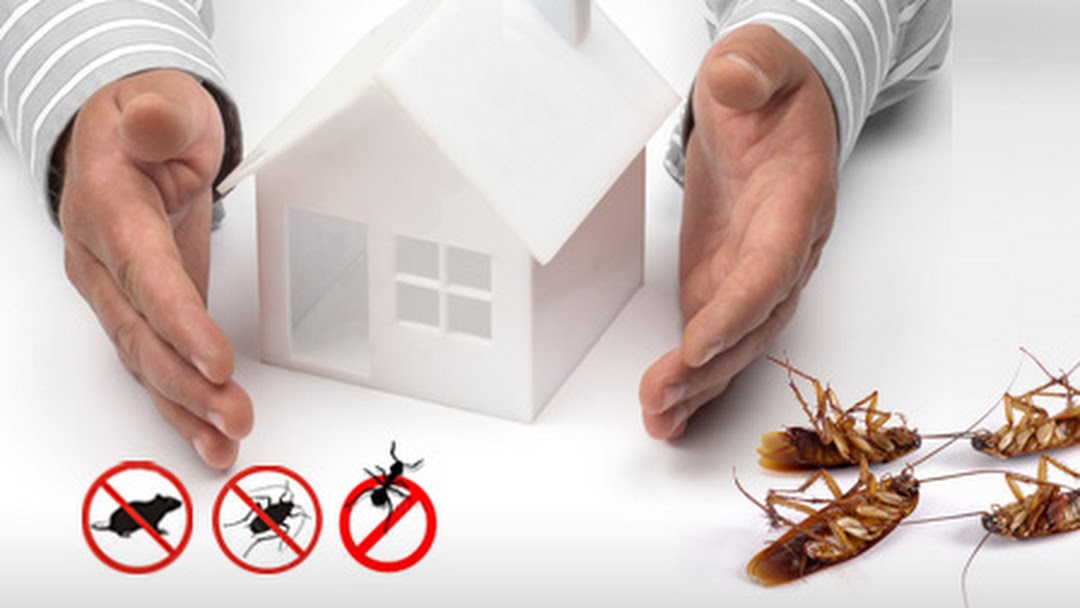Safe and Trusted Bug Control for Lasting Protection
The importance of secure and trusted pest control can not be overemphasized, specifically in a period where environmental problems are extremely important. Reliable bug administration requires a diverse approach that stabilizes ecological stability with the requirement for effective bug suppression. By exploring environmentally friendly options and incorporated bug administration methods, home owners can accomplish long lasting security against intrusive types while securing advantageous communities. The nuances of these approaches may not be quickly clear, prompting a more detailed evaluation of the techniques that can lead to sustainable bug control end results. What actions can be taken to make sure both safety and effectiveness in parasite management?
Understanding Insect Control Techniques
Parasite control encompasses a range of approaches intended at handling and eradicating unwanted insects and rats that can intimidate both wellness and residential property. Recognizing these approaches is crucial for efficient bug monitoring.
The key groups of parasite control approaches include mechanical, organic, and chemical techniques. Mechanical techniques include physical obstacles and traps to stop bug entrance and capture undesirable species. For example, utilizing screens on windows or using sticky catches can dramatically lower parasite populaces without introducing unsafe materials.

Chemical insect control is often one of the most recognized approach, utilizing chemicals to eliminate bugs. These chemicals can be efficient yet need to be used with caution to stay clear of damaging impacts on non-target varieties and the atmosphere.
Advantages of Eco-Friendly Solutions
Exactly how can environmentally friendly options change bug control methods? The adoption of environment-friendly bug control approaches supplies countless advantages, dramatically boosting the performance and security of bug monitoring.

Another benefit is the positive influence on neighborhood biodiversity. Environment-friendly solutions are made to target details parasites while protecting advantageous pests and wildlife, advertising a balanced environment. This method lines up with the growing consumer need for lasting methods, boosting the credibility of insect control suppliers.
Integrated Bug Monitoring Methods
The execution of green solutions normally causes the adoption of Integrated Parasite Monitoring (IPM) methods, which further improve insect control efficiency. IPM is an alternative strategy that combines several methods to manage parasite populaces while decreasing ecological influence. This technique highlights the use of organic, social, mechanical, and chemical controls, guaranteeing a lasting and well balanced approach of insect administration.
One basic aspect of IPM is the extensive evaluation of parasite task and environmental problems. By helpful resources keeping an eye on parasite populaces and recognizing their life process, practitioners can apply targeted interventions that interrupt the parasite's environment or lifecycle, reducing reliance on chemical pesticides. Additionally, cultural techniques such as plant turning and environment adjustment can dramatically lessen pest establishment and recreation.
Another vital element is using biological control agents, such as helpful pests or microbes, which can normally reduce insect populations. When chemical applications are necessary, IPM prioritizes the use of low-risk pesticides and applies them selectively, minimizing direct exposure to non-target microorganisms and people.
Including IPM techniques not only enhances insect control effectiveness yet additionally promotes a more secure environment, lining up with the growing demand for lasting methods in insect management.
Safe Practices for Homeowners
Understanding the relevance of risk-free practices in parasite control can equip property owners to successfully handle pest concerns while protecting their health and the setting. Executing preventive measures and non-toxic approaches is essential in reducing exposure to unsafe chemicals.
Homeowners must initially evaluate their atmosphere for problems that attract insects, such as standing mess, food, and water waste. Consistently cleaning and sealing entrance points can hinder pests from getting into the home. Using all-natural deterrents, such as essential oils or diatomaceous earth, can offer reliable alternatives to chemical pesticides.
When chemical treatments are needed, home owners need to opt for products that are particularly identified as secure for residential use. It is important to comply with application guidelines thoroughly to prevent too much exposure. Furthermore, making use of targeted therapies in locations where parasites are recognized, instead of covering spraying, can dramatically reduce chemical usage.
Lastly, keeping open interaction with parasite control experts is important. Property owners ought to inquire concerning the safety and security of items used and demand environmentally friendly choices whenever possible. By taking on these risk-free methods, homeowners can produce a much healthier living environment while effectively taking care of parasite problems.

Tips for Long-Term Protection
Developing an insect management approach that highlights pest management lasting defense can substantially improve the performance of the risk-free practices formerly talked about. To attain this, house owners must implement normal examinations of their building, focusing on concealed locations such as attics, basements, and crawl rooms. Early detection of parasite activity is critical in stopping problems from holding.
Furthermore, maintaining a tidy setting is important. This consists of proper food storage, promptly cleaning up spills, and consistently throwing away rubbish. These methods lower attractants that draw insects into the home. Sealing entrance fleas points, such as splits around doors and windows, can efficiently obstruct possible pest gain access to.
Landscaping must additionally be taken into consideration; maintaining plants cut and keeping a range in between plant life and the home lessens concealing areas for bugs. Using all-natural deterrents, such as necessary oils or diatomaceous planet, can additionally prevent problems without resorting to harsh chemicals.
Last but not least, teaming up with a specialist parasite control solution for regular examinations can supply an additional layer of safety. These experts can supply tailored referrals and progressed treatments, guaranteeing that your home remains protected versus bugs in the long-term.
Final Thought
In conclusion, reputable and safe pest control calls for a diverse approach that stresses eco-friendly approaches and incorporated pest management. By implementing natural deterrents, carrying out normal inspections, and maintaining correct cleanliness, property proprietors can considerably lower bug populations while safeguarding advantageous pests and the atmosphere. Cooperation with expert parasite control services boosts the effectiveness of these approaches, guaranteeing customized services that provide enduring protection and comfort versus future infestations.
Efficient insect monitoring requires a diverse strategy that balances environmental honesty with the need for reliable insect reductions. The adoption of environment-friendly pest control techniques supplies numerous benefits, significantly improving the effectiveness and safety of parasite management.The application of environment-friendly remedies normally leads to the adoption of Integrated Bug Management (IPM) methods, which better improve parasite control efficacy. exterminator coquitlam. By monitoring insect populations and determining their life cycles, experts can apply targeted treatments that interfere with the pest's habitat or lifecycle, reducing reliance on chemical pesticides.In conclusion, safe and reputable bug control calls for a complex strategy that stresses green approaches and incorporated bug administration